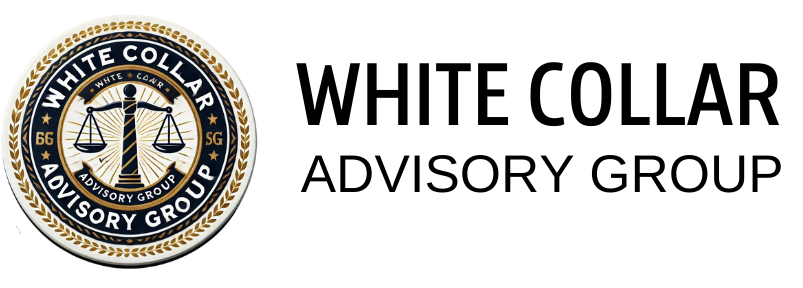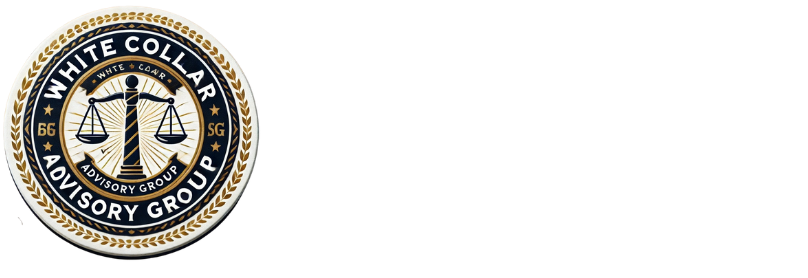What Is the HHS Office of Inspector General (HHS-OIG)?
The Office of Inspector General (OIG) within the Department of Health and Human Services (HHS) is the primary federal agency responsible for Healthcare Fraud and combating fraud, waste, abuse, and misconduct within HHS programs.
Established under the Inspector General Act of 1976, HHS-OIG’s mission is to protect the integrity of government healthcare programs like Medicare, Medicaid, and TRICARE, ensuring that taxpayer dollars are spent appropriately.
Are You Under HHS-OIG Investigation for Healthcare Fraud?
HHS-OIG has broad authority to investigate healthcare fraud, conduct audits, and impose administrative sanctions. Its agents—often working alongside the FBI, DOJ, and Centers for Medicare & Medicaid Services (CMS)—play a pivotal role in criminal, civil, and administrative investigations related to healthcare fraud and abuse.
How White Collar Advisory Group Can Help You
That’s where White Collar Advisory Group comes in. We prepare criminal defendants in dealing with the federal court system and while attorneys focuses on courtroom strategy, we focus on protecting your future by preparing you for the realities of federal prosecution and prison life.
Our services go beyond legal defense—we focus on what comes next:
- Sentencing Preparation: Learn how to present yourself effectively to mitigate sentencing outcomes, including strategies for the Presentence Investigation Report (PSR).
- Prison Consulting: Guidance on navigating the federal prison system, from security classifications to daily survival strategies.
- Sentence Reduction Strategies: Advice on qualifying for programs like RDAP, compassionate release, and sentence mitigation tactics.
- Post-Conviction Support: Assistance with halfway house placement, supervised release, and reentry strategies after prison.
We’ve helped countless clients navigate the federal system, and we’re ready to help you.
Contact Us Now
📧 Email: help@whitecollaradvisorygroup.com
📞 Phone: 480-745-2000`
Self Help Books by Larry Levine
 |
 |
Key Areas HHS-OIG Investigates
HHS-OIG focuses on protecting federal healthcare programs and the individuals who rely on them. Their investigations cover a wide range of healthcare-related crimes, including fraud, abuse, and violations of federal laws like the False Claims Act and the Anti-Kickback Statute.
🏥 1. Healthcare Fraud
- Medicare and Medicaid Fraud: Billing for services not rendered, upcoding, unbundling, and false claims.
- Phantom Billing: Charging for medical procedures, equipment, or tests that were never provided.
- Medical Identity Theft: Using stolen identities to submit fraudulent claims to government healthcare programs.
2. Prescription Drug Fraud
- Opioid and Controlled Substance Diversion: Investigating doctors, pharmacists, and clinics involved in prescription drug fraud.
- Pharmacy Fraud: Billing for unused prescriptions or manipulating drug pricing to defraud government programs.
3. Corporate Healthcare Fraud
- Hospital and Health System Fraud: False claims submitted by hospitals, clinics, or large healthcare organizations.
- Home Healthcare Fraud: Fraudulent billing practices in the home healthcare industry, including kickbacks for patient recruitment.
Penalties for Crimes Investigated by HHS-OIG
Crimes investigated by HHS-OIG carry severe penalties, including federal prison time, hefty fines, and exclusion from federal healthcare programs. Common penalties include:
- Healthcare Fraud (18 U.S.C. § 1347): Up to 10 years in federal prison per count, or 20 years if the fraud resulted in serious injury or death.
- False Claims Act Violations (31 U.S.C. §§ 3729–3733): Civil penalties of up to $23,331 per false claim, plus treble damages (three times the government’s loss).
- Anti-Kickback Statute Violations (42 U.S.C. § 1320a-7b): Up to 10 years in prison and fines of up to $100,000 per violation.
- Money Laundering (18 U.S.C. § 1956): Up to 20 years in prison for laundering proceeds from healthcare fraud schemes.
- Program Exclusion: Healthcare providers found guilty of fraud can be permanently banned from participating in Medicare, Medicaid, and other federal healthcare programs.
Federal sentencing follows the U.S. Sentencing Guidelines, with factors like the amount of financial loss, the number of victims, and the defendant’s role influencing the outcome.
Common Defense Strategies in HHS-OIG Investigations
While HHS-OIG investigations are thorough, several defense strategies can be effective depending on the case:
- Lack of Intent: Proving that the defendant did not knowingly commit fraud, as intent is a critical element in most healthcare-related offenses.
- Compliance Programs: Demonstrating that robust compliance measures were in place, reducing the likelihood of intentional misconduct.
- Insufficient Evidence: Challenging the prosecution’s ability to prove fraudulent billing or kickback arrangements beyond a reasonable doubt.
- Good Faith Defense: Arguing that the defendant acted in good faith based on legal advice or misunderstood complex billing rules.
- Statute of Limitations: Asserting that the government’s case is time-barred, especially in older claims.
An effective defense requires early intervention, detailed forensic analysis, and strategic legal planning tailored to the complexities of healthcare law.
Frequently Asked Questions About HHS-OIG
Does HHS-OIG only investigate healthcare fraud?
No. While healthcare fraud is a primary focus, HHS-OIG also investigates grant fraud, research misconduct, kickback violations, and misuse of federal funds in HHS programs.
How do I know if I’m under investigation by HHS-OIG?
Signs include receiving a subpoena, a civil investigative demand (CID), or being contacted for an interview by an HHS-OIG agent. If you’re served with a subpoena, consult an attorney immediately.
Can HHS-OIG make arrests?
Yes. HHS-OIG agents are federal law enforcement officers with the authority to carry firearms, execute search warrants, and make arrests for federal crimes.
Should I cooperate with HHS-OIG if they contact me?
No. You should never speak to federal investigators without legal representation. Even seemingly innocent statements can be used against you in a criminal case. Always consult with an attorney first.

